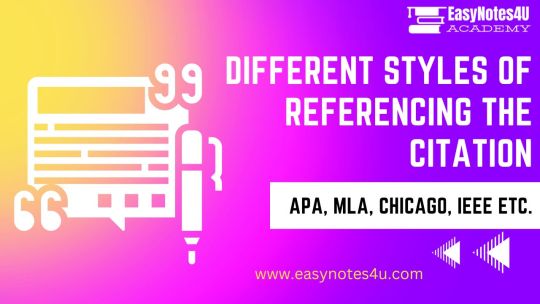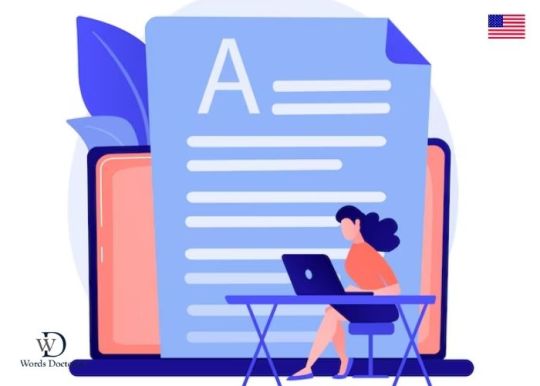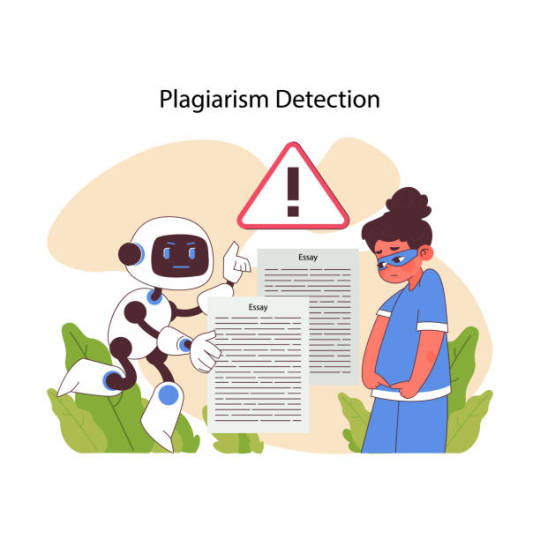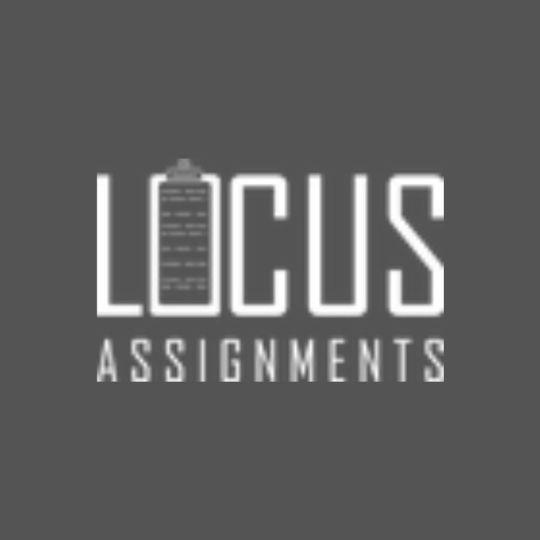#mla referencing style
Explore tagged Tumblr posts
Text
Different Styles of Referencing the Citation: APA, MLA, Chicago, Harvard, Vancouver, IEEE
In this article we are going to discuss about various Different styles of Referencing the Citation: APA, MLA, Chicago, Harvard, Vancouver, IEEE for Article, Book, Reports, Web Sources, Newspaper, Report, Thesis work. Different Styles of Referencing the Citation There are several different styles of referencing the citation used in academic writing: APA, MLA, Chicago, Harvard, Vancouver, IEEE. The…

View On WordPress
#APA referencing Style#Chicago Harvard Referencing Styles#Different Styles of Referencing the Citation#Harvard Referencing Style#IEEE Referencing Stle#MLA Referencing Style#Vancouver IEEE Referencing Styles
0 notes
Text
i think one of my most searched things this year is "[referencing style] guide" or "[referencing style] format document" and i think i should be compensated for how confusing it is.
#floras not studying#floras rambling (read: complaining) about referencing styles#the only two i knew before starting this year were Harvard (and i dont even use it anymore) and APA7 (one of my teachers mentioned it once)#i had never heard of MLA or Chicago Style before going into class#and to be honest i didn't understand what the APA7 was either#also the way the styles dictate what the document looks like? colour me confused i was LOST#study blog#studyblr#i am not motivated to study :] i am quite the opposite :]
2 notes
·
View notes
Text
this isn't about what you have to use in your specific field of study. this is about what you think is actually good. this is about footnotes vs. in-text referencing!!!
838 notes
·
View notes
Text
I just had to convert a bunch of sources from one format into MLA and if purgatory was real that's what I'd be damned to do. Just changing referencing styles over and over again.
22 notes
·
View notes
Note
Okay, the real question.
If the peaks write reports regularly, especially Qing Jing, An Ding, Qian Cao etc. What citation style do they use, is there a standard citation style sect wide, peak wide, or based on preference of hall masters or authors of the reports. Navigating sect wide documents would have to be nearly impossible without a citation system in place. Would An Ding use a style similar to bluebook (legal documents) where they cite the title of the document referenced, relevant sections, date. Is Shang Qinghua an MLA, APA, Chicago, Turabian style kinda guy. Did he have to teach citations to the peaks or were they already filled in through the systems gap filler protocols. Citations formats are usually separated by subject matter but even then it varies and the peaks often dabble in a wide number of subjects.. Not even mentioning possible plagiarism and copyright laws and how that would work applying to cultivation, would seals made by an individual fall under intellectual property or could the sect that person belonged to claim it as belonging to them, do sects even have any sort of I.P laws in place or contracts 😔
I have like close to zero citation knowledge so I have no idea what system he would use but there was a fic that he used the system as a glorified Excel sheet and that's all I've ever gotten to how he categorizes things
If anyone else has theories about what citation he uses, do tell I would love to hear!
28 notes
·
View notes
Text
writing an A+ essay for the humanities courses by your TA, step by step:
First step is always to read your guidelines very carefully and take note of the format; this means the word limit, referencing style (MLA, APA, Chicago, Harvard), and spacing. Write down the steps your professor expects (announcing your topic, first draft, meeting etc.) and their due dates.
finding your topic


🎀 start with your syllabus, is there any topic that you'd like to delve in to more? something that catches your attention? is there anything in your notes that you'd like to explore?
🎀 alternatively, you can take a look at your reading list and take note of journals that the articles were published in. you can write down some of the journal names and read through their latest publications through your library access for inspiration.
🎀 after you have a general idea of what you'd like to research, do an initial web search, a jstor search, and a library search. skim through the abstracts and selectively read what looks interesting to have an idea on this area of study and note down the kind of questions they try to answer in these papers.
🎀 book an appointment with your professor. chances are you're already required to let them know what you'll be writing on before you hand the paper in. so go to their office hours and tell them this is what you'd like to research, even if you're kind of scared or anxious or nervous, go and talk to them. they'll ask you some questions about how you'd like to go around researching your topic, and you can tell them about the kind of questions you found that could be interesting to pursue. they can advise you on how to narrow your topic down or point you towards some useful material. with that, you can start researching!
how to research


📚 while there is no one-size-fits-all research method, something helpful to do is picking out books on the topic and going through the bibliography. don't try to read everything ever written on this topic, but look at the abstracts and key words and skim through papers & books to find things relevant to your topic.
📚 definitely look into your professor's recommendations and you can jump from there, just bibliography hop and note down page numbers and citations on your word page that you'd like to use.
📚 as you read and note quotes, after some point you'll see a pattern and a shape of an argument forming in your head. arrange your quotes into logical sections that follow that argument and read a bit more to see if you can specifically find things written about that argument you've discovered. continue noting quotes.
📚 remember that for an undergrad paper, your professor will advise you on how many references you should ideally have in your paper and you should follow that. in your quotes stage, try to shoot a little bit higher than the advised number of bibliography you're expected to have. always, ALWAYS write your citations correctly with page numbers, even if you've paraphrased their arguments for your notes.
writing your paper


🩷 now, at some point you'll need to slow down on reading and start writing. you have some writing on your word page already, and chances are, you're already sitting with an over-the-word-limit paper just containing quotes. this is ideal.
✨️ start with trying to articulate your argument, and summarising the thread you've built with quotes. what is it that you're trying to answer here? how does it relate to your material (your primary source, this could be a literary book, an archaeological evidence, a building, an object, a painting, etc)?
🩷 do a little sectioning with your quotes, label 2 or 3 sections and group the quotes this way. then, write down what this group does, what do they argue for, what is the context of this argument, and how it relates to your argument.
✨️ go through all your sections like this. you can strike down some quotes, or choose to paraphrase them (you still need to cite them when you do this). try to use quotes that communicate with each other, or build a bridge between your different quotes. Add two more sections labeled: introduction, conclusion.
🩷 in the introduction you should give a brief context of your primary, verrrry brief, and then your argument that is stated as clearly as possible. you can give a short path as to how you're going to argue and what kind of proof you have; and also write down how you've organised your paper.
✨️ in the conclusion you summarise your argument and write down the implications of this in the general context of this area of study; what does it mean for this topic in general, what impact does it have, does your argument fill a gap, does it contradict the general consensus, does it prove that the general view is correct? you could write down what could be further studied for extra flair.
editing
🪸 check your citations, references, and bibliography. check them again. are they in the correct format? do they include all the information you need to provide? is it alphabetical? have you correctly gave references everywhere you needed to do and did not accidentally plagiarise anything?
🪸 check your spelling and grammar. try to do this about three days after you've written the paper. if you're pressed for time, have someone else read it for you. you will not be able to catch your grammatical errors after writing it because you become blind to your own writing after a certain time. if you want that A, the paper should look polished and have the correct formatting.
🪸 make sure your name is on the paper so you'll see it marked with an A+. Well done!
18 notes
·
View notes
Text
Is this anxiety? Is this a Trauma response? Am I being too careful? Or Am I just trying to get re-aquainted to blogging after a decade-long break?
I'm in the middle of writing a much longer introductory article for a different blog I run. (Not on Tumblr). It has no audience.
Throughout the blog post I have the following:
My original writing
images of my original artwork
photographs and diagrams I created
YouTube videos I did not create, but know how to attribute
text I did not create, but know how to attribute.
text I created with information I know how to attribute.
Text I created with information I do not know how to attribute.
Most of my external references are completely rephrased to further the points I'm trying to make in the text. When referencing outside information, I usually include a standard in-text reference, and an embedded link (and maybe a PDF of what I accessed) whenever possible. This is regardless of whether I'm using an exact quote.
When I do pull exact quotes, I do so within the limits of fair use.
When I say I do not know how to attribute information, I don't mean challenging attributions with difficult to find author information. I am talking about information I synthesized from a conglomeration of many different sources, most of which are unknowable to my audhd and dyslexic brain.
How do other writers overcome this?
Is it just my creative-writer brain stressing? Is there truth to this monologue?
Am I old to instinctively want to call it my bibliography?
I also will have some sort of bibliography or footnotes section at the end, with a complete IEEE or MLA style reference.
Does IEEE with footnotes, vs a verbose MLA reference truly matter?
Outside of including links and attribution, I don't include a "call to action" for the reader to subscribe to the outside source. I simply use references that are directly related to the point I'm trying to make.
While this might be an obsessive thought, I also don't really know what to do.
Has anybody else gone through the questions of "How do I appropriately reference synthesized information?"
#writers on tumblr#neurodiverse stuff#neurodivergency#actually audhd#writeblr#transgender writer#dyslexic#audhd#audhd problems#its the neurodivergency#neurodivergent panic#obsessive thinking#citation#literature#creative writing#writing#inspiration#citing my soruces#am i old now?#childhood trauma#processing trauma#obsessive thoughts#fiction#woes of a writer#woes of a fiction writer#long post#technical discussion of proper reference#ramblings#rambles#idk how to tag this
5 notes
·
View notes
Text
How Assignment Help USA helps with Essay Writing & Appendices
When preparing a scholarly paper, it is crucial to maintain proper formatting to maintain clarity and professional standards. Among the most frequently neglected parts is the appendix. Whether it is extra research, raw data, or ancillary material, the appendix in a report or essay needs to be formatted in a manner that is in line with scholarly requirements. In case you require help, professional Assignment Help USA services, such as that of Oz Assignments, can guide you to meet the required standards.
Understanding the Appendix
The appendix is a concluding section in scholarly reports that contains ancillary material that is not included in the body of the report. The appendix gives more facts, statistics, and results of studies without disrupting the material's flow.
Importance of an Appendix
Enhances Credibility: Includes supporting evidence and citations that reinforce key arguments
Improves Readability: Makes the main content concise but allows detailed information in a separate section.
Demonstrates Research Skills – Shows analysis capabilities and hard work in researching, indicating a great effort in collecting data.
Despite its usefulness, misformatting appendices can be a source of confusion or penalties. Professional Assignment Help USA ensures that your document is of high academic standards.
Common Appendix Formatting Problems
Many students struggle to organize an appendix due to unfamiliarity with academic rules of formatting. Some of the most common challenges are:
Incorrect Labeling: Appendices should be correctly numbered (Appendix A, Appendix B, etc.) with titles that accurately describe them.
Improper Referencing: The appendices must be properly referenced in the document to be easily accessible
Disorganized Content: The information should be in a logical sequence and be consistent
Inconsistent Formatting: Font sizes, margins, and alignments need to be consistent throughout the document.
Professional Assignment Help USA services can assist in satisfying these needs effectively.
How Oz Assignments can assist you in appendix formatting
Oz Assignments provides professional academic help that deals with appendix formatting in reports or essays. Some of their services are:
Proper Structuring: Ensuring appendices are labelled correctly and positioned appropriately.
Consistent Formatting Styles: Adhering to various citation formats (APA, MLA, Chicago, Harvard).
Accurate Referencing: Proper cross-referencing of appendices to maintain credibility
Clarity and readability: organizing content to be easily readable and understandable
Compliance with Academic Standards: Aligning to institutional requirements to avert rejections.
Additional Academic Services Provided by Oz Assignments
Essay Writing Services: Professional guidance in structuring, researching, and proper citations to provide high-quality essays.
Report Writing Services: Professional reports with detailed analysis and exactness in structuring
Dissertation and Thesis Help: Extensive support in structuring, referencing, and editing lengthy scholarly work
Proofreading and Editing Services: Ensuring clarity, grammar correctness, and coherence in all academic assignments
Plagiarism Checks and Citation Assistance: Helping students maintain originality using plagiarism-free work and proper citation strategies
Conclusion
Formatting an appendix in a report or essay is of paramount importance to maintain academic credibility. If you need help, you can get premium Assignment Help USA services from Oz Assignments. Their professional team ensures that your appendix is correctly formatted, referenced, and in line with academic requirements. Let professionals take over your formatting needs and submit a high-quality, refined paper today!
0 notes
Text
UK Dissertation Helper: Your Reliable Academic Support

Understanding the Role of a Dissertation Helper
A dissertation is one of the most challenging academic tasks for students in the UK. Each stage demands time, effort, and expertise, from selecting a research topic to structuring, writing, and formatting. Many students struggle with research gaps, time constraints, and formatting guidelines. This is where UK Dissertation Helper plays a crucial role, offering structured guidance and professional support to ensure academic success.
Why UK Students Need Dissertation Help
Several factors contribute to the demand for dissertation assistance in the UK:
Strict Academic Standards: British universities follow rigorous guidelines, making dissertation writing complex.
Time Constraints: Many students juggle studies with part-time jobs, leaving limited time for extensive research.
Lack of Research Skills: Conducting original research requires access to credible sources and analytical skills.
Formatting and Referencing Issues: Incorrect citation styles such as Harvard, APA, or MLA can lead to score deductions.
Services Offered by UK Dissertation Helper
UK Dissertation Helper provides a range of services tailored to students' needs, including:
Dissertation Writing – Complete writing support from topic selection to final submission.
Dissertation Editing – Ensuring clarity, coherence, and adherence to university guidelines.
Proofreading Services – Eliminating grammar, spelling, and formatting errors.
Proposal Assistance – Helping students craft compelling dissertation proposals.
Data Analysis Support – Assisting with statistical tools like SPSS, STATA, and NVivo.
Case Study: How Dissertation Help Transformed a Student’s Performance
A recent case involved a postgraduate student at a top UK university struggling with dissertation deadlines. Despite having a solid research idea, they faced difficulties in structuring the content and applying proper referencing. After seeking professional guidance, the student received:
A well-organized dissertation outline.
Detailed feedback on improving arguments and critical analysis.
Proper citation and formatting per university guidelines. The result? The student successfully submitted a well-structured dissertation and secured a high grade.
The Value of Professional Dissertation Assistance
Engaging a dissertation helper doesn’t mean compromising academic integrity. Instead, it provides structured support that enhances students’ research and writing abilities. With expert guidance, students learn how to:
Formulate clear research questions.
Develop a logical structure.
Implement proper referencing techniques.
Strengthen analytical and critical thinking skills.
Conclusion
Writing a dissertation is a demanding process, but with the right support, UK students can navigate it effectively. UK Dissertation Helper offers essential guidance, ensuring students meet academic expectations and submit high-quality work. For those looking to improve their dissertation writing skills, professional assistance can be the key to academic success.
#writing dissertation#marketing dissertation help#mba dissertation help#mba dissertation help uk#healthcare dissertation help
0 notes
Text
How to Write an Assignment

Writing an assignment is an essential academic skill that requires proper planning, research, and organization. Whether you are a school student or a university scholar, mastering assignment writing can enhance your grades and improve your analytical skills. This guide provides a step-by-step approach to writing an effective assignment.
1. Understand the Assignment Requirements
Before starting, carefully read the instructions provided by your teacher or professor. Pay attention to:
The topic or question
The word limit
The formatting style (APA, MLA, Harvard, etc.)
The deadline
Specific guidelines or expectations
Understanding these requirements ensures that your assignment meets the criteria set by your instructor.
2. Conduct Thorough Research
Good research is the foundation of a well-written assignment. Use reliable sources such as:
Academic journals
Books
Online articles from reputable sources
Government or institutional reports
Previous research papers
Take notes while researching and organize your findings systematically to avoid missing crucial points.
3. Plan and Outline Your Assignment
An outline acts as a roadmap, helping you structure your assignment logically. Your outline should include:
Introduction – Briefly introduce the topic and the purpose of the assignment.
Main Body – Divide your main ideas into sections or paragraphs.
Conclusion – Summarize key points and provide final thoughts.
Having an outline makes writing easier and ensures coherence throughout your assignment.
4. Write a Strong Introduction
The introduction sets the tone for your assignment. It should:
Introduce the topic clearly.
Provide background information.
Outline the main objectives.
Present a thesis statement (if required).
A well-crafted introduction captures the reader’s interest and provides a clear direction for the rest of the assignment.
5. Develop the Main Body
The main body is where you present your arguments, analysis, or discussions. Each paragraph should:
Focus on one main point.
Begin with a topic sentence.
Include evidence, examples, or references.
Provide analysis or interpretation.
Ensure a logical flow between paragraphs by using linking words such as however, therefore, moreover, additionally, and consequently.
6. Write a Clear and Concise Conclusion
The conclusion should:
Summarize the key points discussed.
Restate the thesis (if applicable).
Offer final thoughts or recommendations.
Avoid introducing new ideas in the conclusion. Instead, provide a strong closing statement that leaves an impact.
7. Cite Your Sources Properly
Referencing is crucial to avoid plagiarism. Use the required citation style (APA, MLA, Harvard, Chicago, etc.) and ensure all sources are properly cited. This adds credibility to your work and acknowledges the contributions of other researchers.
8. Edit and Proofread
Editing and proofreading improve the quality of your assignment. Check for:
Grammar and spelling errors.
Sentence structure and clarity.
Consistency in formatting and citation.
Logical flow of ideas.
Reading your assignment aloud or using tools like Grammarly can help identify errors more effectively.
9. Format and Submit Your Assignment
Follow the required format, including:
Font type and size (e.g., Times New Roman, 12pt)
Line spacing (e.g., double-spaced)
Margins and page numbers
Title page (if required)
Appendices (if applicable)
Once everything is in place, submit your assignment before the deadline.
Conclusion
Writing an assignment may seem challenging, but with proper planning, research, and organization, you can create a compelling and well-structured piece. By following these steps, you can improve your academic writing skills and achieve better results in your studies.
0 notes
Text
Best New York, USA Research Paper Editing Services - Words Doctorate

In the competitive world of academia and research, a high-quality research paper requires precision, clarity, and thorough editing. For scholars, students, and researchers seeking the Research Paper Editing – Words Doctorate, our expert editing services ensure that your research meets the highest academic standards. With years of experience, Words Doctorate is a trusted name in research paper editing, offering meticulous proofreading and comprehensive language refinement.
Why Choose Words Doctorate for the Best Research Paper Editing in New York, USA?
We at Words Doctorate know how important an edited research paper is. We have a team of professional editors specialized in the refining of research documents, which would enhance the clarity, coherence, and integrity of the text. Here's why our editing service stands out:
Expert Editors: Our team consists of PhD scholars and experienced editors who are well-versed with various fields of research.
Comprehensive Editing: We are not just basic proofreaders but provide structural improvements, clarity of content, and logical flow.
Plagiarism-Free Assurance: Our editors ensure that your research paper is original and free from any unintentional plagiarism.
Formatting Perfection: We align your paper with the required citation styles such as APA, MLA, Chicago, and Harvard.
Timely Delivery: We consider deadlines and give prompt turnaround time for all our editing assignments.
Key Features of Our Best Research Paper Editing in USA – Words Doctorate
1. Language Enhancement
A good research paper should not have grammatical errors and awkward sentence structures. Our editors polish your manuscript by:
Correcting grammatical, punctuation, and spelling errors
Improving sentence flow and coherence
Enhancing readability for better comprehension
2. Structural and Logical Improvements
A well-thought-out research paper makes it easier to read and more academically credible. Our specialists help with:
Logical content ordering
Refining arguments and developing a thesis statement
Removing redundancy and ambiguous phrases
3. Proper Formatting and Citation
Journal and university academic papers follow proper formatting requirements. Our editing experts ensure:
Consistency in formatting according to journal or university guidelines
Citation and referencing to the proper use of materials
Tables, figures, and charts are error-free
4. Plagiarism Checking and Reduction
Academic writing primarily faces plagiarism problem. We assure you of high accuracy in detection of plagiarism suggestive paraphrasing as well as cite original and genuine work 5. Discipline- Specific Editing An editor's well-rounded base knowledge of academics brings your research paper to the polishing hands of your field's experienced professionals. Let it be scientific and engineering domain or social science and humanities - our experts gear up the extent of editing required by you.
Who may benefit from the best research paper editing in New York, USA – Words Doctorate?
We serve the following students and students:
PhD Scholars-ensuring quality for dissertations Writing and theses
University Students- perfecting assignments and research papers
Professors & Academicians- perfecting research for publication
Corporate Researchers- perfecting business and market research reports
How does our best research paper editing in New York, USA – Words Doctorate work?
Our simple yet effective process ensures that your research paper is edited to perfection:
Submit Your Research Paper – Upload your document for review.
Review and Editing Process – Our expert editors work on perfecting your paper.
Quality Assurance – We do a final check to make it perfect.
Get Your Edited Paper – Get a polished, publication-ready document.
Why is Research Paper Editing Important?
In addition to that, editing is one of the processes in research paper publication. With high-quality requirements in both impact journals and educational institutions, an edited paper brings:
Better opportunity for publication in good journals
Improved authenticity and readability
Free from ambiguity, and a proper logical conclusion
Conclusion
In case you want the Best Research Paper Editing in New York, USA – Words Doctorate, you're in the right page. Our professionals at Words Doctorate ensure to provide you with the best possible research paper editing to meet academic excellence. Let our professional editing team work perfectly on your research, eliminating mistakes and perfecting it to become the best possible. Let the best be good enough by contacting Words Doctorate for reliable research paper editing in New York.
0 notes
Text
Research and Publication Services: A Key to Academic Success
In today’s highly competitive academic environment, research and publication are pivotal for establishing credibility and advancing knowledge in various fields. Whether you are a student, researcher, or academic professional, the process of researching and publishing your work can be daunting without the right support. This is where research and publication services come into play. These services provide essential assistance to individuals and institutions engaged in academic work, offering expertise in the areas of writing, editing, submission, and overall research strategy. This article explores the significance of these services, their key offerings, and how they can facilitate success in the academic world.
The Importance of Research and Publication
Research forms the foundation of scientific progress, intellectual advancement, and innovation in almost every domain, from medicine and engineering to humanities and social sciences. Publishing research findings in peer-reviewed journals is often considered the gold standard for academic recognition. Successful publication not only helps researchers to establish themselves as experts in their field but also ensures that their work is accessible to the global academic community. It opens doors for career advancement, funding opportunities, and collaborations with other scholars and institutions.
However, the process of preparing research for publication can be complex and time-consuming. It requires a strong understanding of academic writing standards, knowledge of journal requirements, and meticulous attention to detail. This is where research and publication services become crucial, offering tailored support to researchers at every stage of the process.
Key Offerings of Research and Publication Services
Research Consultation and Strategy Before diving into the writing and publishing process, researchers need to have a clear research plan in place. Research and publication services often offer consultation to help clients refine their research questions, identify appropriate methodologies, and plan their research efficiently. Expert advice ensures that the research is not only relevant but also aligned with the latest trends and gaps in the field. A well-thought-out research strategy increases the chances of producing high-quality work that can be successfully published.
Writing and Structuring Support Academic writing is different from general writing, requiring a precise and formal approach. Research and publication services often offer support in crafting the research paper, ensuring it adheres to the specific guidelines of the target journal. They assist with proper structuring of the paper, including the introduction, literature review, methodology, results, and conclusion. Additionally, they help in ensuring clarity and coherence throughout the document.
Editing and Proofreading Even experienced writers often struggle with the subtleties of academic writing, such as grammar, syntax, and consistency in referencing styles. A well-edited paper stands a higher chance of being accepted for publication. Research and publication services provide expert editing and proofreading to ensure that the research paper is free from grammatical errors, typos, and formatting inconsistencies. Furthermore, they ensure that the paper complies with the required citation style (e.g., APA, MLA, Chicago) and that all references are correctly formatted.
Plagiarism Checking Plagiarism is a serious academic offense and can significantly damage a researcher’s reputation. Research services help ensure that the work is original and free from plagiarism. Using advanced plagiarism detection tools, these services can scan the document to ensure proper citations and that no part of the research has been copied from other sources without proper acknowledgment.
Journal Selection and Submission Selecting the right journal for submission is crucial for the success of a research paper. Research and publication services guide researchers in identifying reputable journals that align with the topic of their research. They provide insights into factors like the journal’s impact factor, audience, and acceptance rates. Furthermore, they assist with the submission process, ensuring that the paper is formatted correctly and submitted according to the journal’s guidelines.
Peer Review and Feedback Once a paper is submitted, it often undergoes a peer review process, where other experts in the field evaluate its quality and relevance. Many research services offer a mock peer review to prepare researchers for the actual review process. This step helps to identify potential weaknesses in the paper and provides valuable feedback before the paper is formally submitted for publication.
Research and Publication ServicesPost-Publication Support The work doesn’t end once the paper is published. Researchers may require support with disseminating their work, handling media inquiries, or improving their paper's visibility. Some services offer post-publication assistance by helping with promotional strategies and social media outreach to ensure maximum impact.
Conclusion
Research and publication services play a vital role in the success of academic and research professionals. They offer expertise, save time, and help researchers navigate the intricacies of academic writing and publishing. From research planning and writing support to editing, plagiarism checking, and post-publication promotion, these services ensure that researchers can focus on their core tasks, knowing that they have the support they need to successfully publish their work. With the academic landscape becoming increasingly competitive, leveraging research and publication services can make a significant difference in achieving scholarly success.
1 note
·
View note
Text
Essay Help How to Improve Your Writing and Avoid Common Mistakes
Writing essays can often be a daunting task, especially for college and university students who are juggling multiple responsibilities. The pressure to deliver high-quality work can feel overwhelming, particularly as assignments grow more complex in higher education. Fortunately, seeking Essay Help can provide the support and guidance needed to improve writing skills, enhance academic performance, and alleviate stress. This article will explore how students can effectively seek assistance, improve their writing process, and avoid common pitfalls that often hinder essay success.
Understanding the Importance of Essay Help
At the core of academic success is the ability to express ideas clearly and persuasively in writing. Whether it’s an argumentative essay, research paper, or analytical essay, strong writing skills are essential for academic performance. Essay help can play a crucial role in this development, providing students with the necessary tools, resources, and feedback to improve their writing abilities.
However, it's important to understand that seeking assistance with essays does not mean relying solely on others to complete the work. Instead, effective essay help empowers students to develop their own skills while ensuring that the final product meets the academic requirements and standards.
Tips for Improving Your Essay Writing
Start Early and Plan Ahead One of the most common reasons students struggle with essays is poor time management. Starting the writing process early allows for more thoughtful planning and reduces the stress of last-minute rushes. Begin by thoroughly reading the assignment prompt to ensure a clear understanding of the topic, guidelines, and expected outcome. Creating an outline or mind map can help organize thoughts, define the structure of the essay, and identify key points to address.
Seek Clarity in Your Thesis Statement The thesis statement is the foundation of your essay—it clearly expresses the main argument or purpose of your paper. Without a strong thesis, an essay may lack direction, leading to confusion for both the writer and the reader. If you're unsure about your thesis, consider seeking essay help from a tutor, professor, or peer to ensure your thesis is concise, focused, and aligned with the essay prompt.
Develop Strong Topic Sentences and Paragraphs Each paragraph should start with a strong topic sentence that ties back to the thesis and introduces the main point of the paragraph. Building clear, well-structured paragraphs ensures that your ideas flow logically and that your arguments are well-supported. If you're unsure about the strength of your paragraphs, consider asking for feedback or using essay help resources to review and refine your work.
Use Credible Sources and Proper Citation A key aspect of academic essays is the use of credible, reliable sources to support arguments. Incorporating scholarly articles, books, and reputable journals not only strengthens your argument but also demonstrates your ability to engage with existing research. Remember to cite your sources correctly, whether in APA, MLA, Chicago, or another citation style. Mistakes in citation can lead to accusations of plagiarism, so seeking essay help with proper referencing can help you avoid this issue.
Improve Your Writing Style Effective academic writing requires clarity and precision. Avoid overly complex sentences and unnecessary jargon. Use varied sentence structures to keep the reader engaged while remaining focused on the central idea. Many students benefit from having a second set of eyes on their essays. Whether it’s a peer, tutor, or online resource, receiving constructive feedback is invaluable in improving writing style. With essay help, you can identify areas where your language might be unclear or verbose and refine it for better readability.
Revise and Edit Thoroughly A first draft is never perfect. Revision is a critical step in the writing process that allows you to refine your ideas, fix errors, and improve the overall quality of the essay. After completing your first draft, take the time to step away from it for a short period before revisiting it with fresh eyes. This break helps identify areas for improvement more easily. Consider seeking essay help with the revision process, whether through peer review or utilizing online resources that guide you through the editing process.
Common Essay Mistakes and How to Avoid Them
Lack of Focus One common mistake students make in essay writing is wandering off-topic. If the essay lacks a clear focus, the arguments may appear weak or unfocused, confusing the reader. To avoid this, always return to the thesis statement and ask yourself whether each paragraph supports the main argument. Regularly reviewing your outline and ensuring that each point is relevant will help maintain focus.
Inadequate Argument Development Some students struggle with fleshing out their arguments adequately. It's not enough to merely state a point—each argument should be backed with evidence, examples, and reasoning that help strengthen the position. When writing your essay, take time to evaluate whether each point is sufficiently explained. If unsure, you can seek essay help by discussing your argument with a professor or using peer review for constructive input.
Poor Grammar and Syntax Mistakes in grammar, punctuation, and sentence structure can severely undermine the quality of your essay. These errors distract the reader and can diminish the credibility of your work. Use tools for grammar checking and proofreading, or ask for essay help from a tutor or writing center to ensure your work is free of common errors. Editing your work multiple times and reading it aloud can also help catch mistakes you might otherwise miss.
Overgeneralizing or Making Unsupported Claims Another frequent pitfall is making overgeneralized statements without evidence to back them up. For example, saying "All students should adopt a healthy lifestyle" is a broad statement without sufficient proof. In academic writing, every claim must be backed by solid evidence from reputable sources. Always ensure that your claims are supported by data, research, or clear reasoning.
Ignoring the Conclusion Many students rush through the conclusion, treating it as an afterthought. However, the conclusion is just as important as the introduction. It should effectively summarize the main points of your essay, restate the thesis in light of the evidence presented, and leave the reader with a sense of closure. Avoid introducing new ideas in the conclusion, as this can confuse your argument.
How to Effectively Seek Essay Help
Seeking essay help can take many forms, depending on the type of support you need. Here are some suggestions for effectively utilizing available resources:
Ask for Feedback: Approach professors, teaching assistants, or peers for feedback on your writing. Their insights can help refine your argument and improve your essay’s clarity.
Consult Writing Centers: Many universities have writing centers where students can receive help with any stage of the writing process. These centers often provide one-on-one consultations, workshops, and other helpful resources.
Utilize Online Resources: Many online platforms provide free guides, templates, and tips for writing academic essays. Make use of these tools to enhance your understanding of the writing process.
Practice Writing Regularly: Finally, the best way to improve your writing is by practicing regularly. The more you write, the more comfortable and confident you’ll become in your abilities.
Conclusion
Improving your essay-writing skills requires time, effort, and dedication, but with the right approach and the use of essay help, students can overcome challenges and produce strong, effective essays. Remember that the key to success lies in clear planning, strong arguments, thoughtful revision, and using available resources to enhance your writing process. Whether you're seeking assistance from a tutor, using online resources, or reviewing your drafts for clarity, taking the time to refine your writing will result in better essays and, ultimately, better academic performance.
0 notes
Text
How to Properly Cite Sources to Avoid Plagiarism
Plagiarism is a serious offense in academic, professional, and creative fields. Whether intentional or accidental, failing to give proper credit to original authors can lead to loss of credibility, legal issues, and damage to your reputation. Fortunately, learning how to properly cite sources is a straightforward way to avoid plagiarism and maintain integrity in your work. Here’s a guide on how to cite sources effectively:

1. Understand Why Citation Matters
Citing sources is more than a formality—it’s an acknowledgment of others’ contributions to your work. Proper citation:
Gives credit to the original authors for their ideas and research.
Strengthens your arguments by referencing credible sources.
Enables readers to verify your claims and explore additional information.
Avoids plagiarism by clearly distinguishing your ideas from those of others.
2. Familiarize Yourself with Citation Styles
Different fields and disciplines use various citation styles, each with specific rules. The most common styles include:
APA (American Psychological Association): Often used in social sciences, education, and psychology.
MLA (Modern Language Association): Commonly used in humanities, such as literature and art.
Chicago/Turabian: Frequently used in history, business, and fine arts.
Harvard: Widely used in various academic and professional contexts.
IEEE (Institute of Electrical and Electronics Engineers): Preferred in engineering and computer science fields.
Check the guidelines for your specific field or institution to determine the appropriate style.
3. Keep Track of Your Sources
When conducting research, maintain a detailed record of all the sources you consult. Include:
Author’s name(s)
Title of the work (book, article, website, etc.)
Publication date
Publisher or organization
Page numbers (if applicable)
URL or DOI (for online sources)
Organizing your sources from the beginning makes it easier to create citations and a bibliography later.
4. Integrate In-Text Citations
In-text citations are brief references within your work that point to the full citation in your bibliography or reference list. Different styles have specific formats for in-text citations:
APA: (Author’s Last Name, Year, Page Number)
MLA: (Author’s Last Name Page Number)
Chicago (Notes and Bibliography): Use footnotes or endnotes with full or shortened citations.
Always place in-text citations immediately after the quoted, paraphrased, or summarized content.
5. Master Quoting, Paraphrasing, and Summarizing
Quoting: Use quotation marks to indicate direct word-for-word usage of a source. Include an in-text citation.
Paraphrasing: Restate the source’s ideas in your own words without changing the meaning. Even when paraphrasing, you must cite the source.
Summarizing: Condense the main ideas of a source into a brief overview. Cite the source to credit the original author.
6. Use Citation Tools and Software
Technology makes citation easier and more accurate. Tools like Zotero, EndNote, and Mendeley help you manage references and generate citations in your chosen style. Online citation generators, such as Citation Machine and EasyBib, can also assist in creating quick citations.
7. Double-Check Your Work
Before submitting your work, review your citations to ensure accuracy and consistency. Common errors to look for include:
Missing or incomplete citations.
Incorrect formatting based on the required style.
Misattributed or missing sources.
Cross-reference your citations with your reference list to avoid discrepancies.
8. Consult Style Guides and Resources
If you’re unsure about citation rules, refer to official style manuals or trusted online resources. Many universities and libraries offer guides and tutorials for proper citation. Some popular resources include:
Purdue OWL (Online Writing Lab)
The MLA Handbook
The Publication Manual of the American Psychological Association
Conclusion
Properly citing sources is an essential skill for anyone engaging in research or writing. By understanding citation styles, keeping track of your sources, and using available tools, you can avoid plagiarism and uphold the integrity of your work. Remember, giving credit where it’s due not only benefits the original authors but also enhances your credibility and professionalism.
0 notes
Text
Enhance Your Academic Writing with Jenni: Your AI-Powered Research Assistant

Jenni is a revolutionary AI-driven writing assistant tailored to simplify and enhance the academic writing experience for students, researchers, and professionals. This powerful tool provides intelligent support for crafting essays, research papers, and reports by offering real-time suggestions, automatic citations, and paraphrasing options. Jenni is designed to improve both the efficiency and quality of writing, ensuring users can focus on their ideas and arguments without being bogged down by tedious formatting or citation tasks.
Main Content: Jenni’s advanced capabilities cater specifically to the needs of academic writers. It combines intuitive design with intelligent automation, transforming the way users approach their writing process. From overcoming writer’s block to managing research materials, Jenni ensures that every step of the journey is streamlined, allowing for more time to refine and perfect ideas.
Key Features:
AI Autocomplete: Provides real-time writing suggestions to help users maintain a consistent flow and overcome writer’s block.
In-Text Citations: Automatically formats citations in popular styles like APA, MLA, Chicago, and Harvard, saving time and ensuring accuracy.
Paraphrasing and Rewriting: Allows users to rephrase text in various tones to suit academic and professional needs.
Plagiarism Checker: Detects potential instances of plagiarism, ensuring originality in all written work.
Research Library: Enables efficient organization and retrieval of research materials for easy citation and reference.
Benefits:
Improved Writing Efficiency: Automates time-consuming processes, enabling users to concentrate on developing strong content.
Enhanced Content Quality: Provides intelligent feedback and suggestions, resulting in clear and well-structured writing.
Accurate Referencing: Eliminates errors in citations, ensuring compliance with academic standards.
Originality Assurance: Ensures unique content by identifying and addressing potential plagiarism.
Discover how Jenni can transform your academic writing experience. Visit AIWIKI - aiwikiweb.com/jenni
0 notes
Text
Discover Expert Tips On When To Get Help On Assignments
Although academic assignments are an integral part of a student's journey, there comes a time when it gets out of hand. That is where seeking professional help for the assignments becomes a smart move. Be it racing against looming deadlines, complex topics, or juggling many responsibilities professional support assures high-quality work without compromising on your academic performance.
Deadlines often catch students off guard, leaving no time to complete tasks. If you find yourself thinking, "Can anyone help me with submissions by tomorrow?" it's a surefire sign to seek help with assignments. Professional assignment helpers deliver quality work in the shortest time, saving you from the risk of missed deadlines. The same applies to complex topics, say advanced mathematics or deep philosophical theories, which take more time and energy to deal with. In that case, experts make it easier for you, presenting well-researched solutions.
Balancing multiple assignments alongside other commitments is another scenario where help on assignments proves invaluable. Delegating tasks to professionals reduces stress and allows you to focus on other priorities. Moreover, students aiming to improve grades often find professional support beneficial. Effective, error-free assignments created by experts align with academic standards, enhancing overall performance.
Other challenges in academic writing involve formatting and referencing. Even excellent content may be deprived of marks because of incorrect citations or improper structure. If you have a tough time with referencing styles-APA, MLA, or Harvard, professional assignment helpers ensure your work will meet technical requirements, boost grades, and reduce stress.
The landmark for experienced experts, timely delivery, and personalised support while choosing a service is Locus Assignments. They are reasonably priced, assure guaranteed quality, and the solutions are well-researched and plagiarism-free, with the answers tailored to the student's needs.
In conclusion, seeking help for assignments isn’t a weakness but a practical step toward academic success. Tight deadlines, complex topics, or a need to enhance your grades are valid reasons to seek professional help on assignments. With trusted partners like Locus Assignments, you can navigate academic challenges effectively, ensuring a smoother and more successful educational journey.
for more info: click here

0 notes